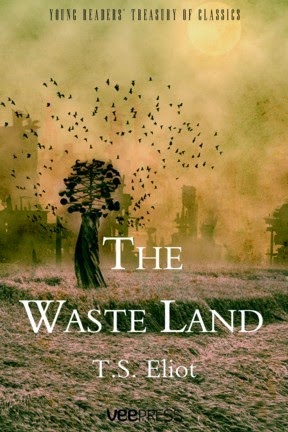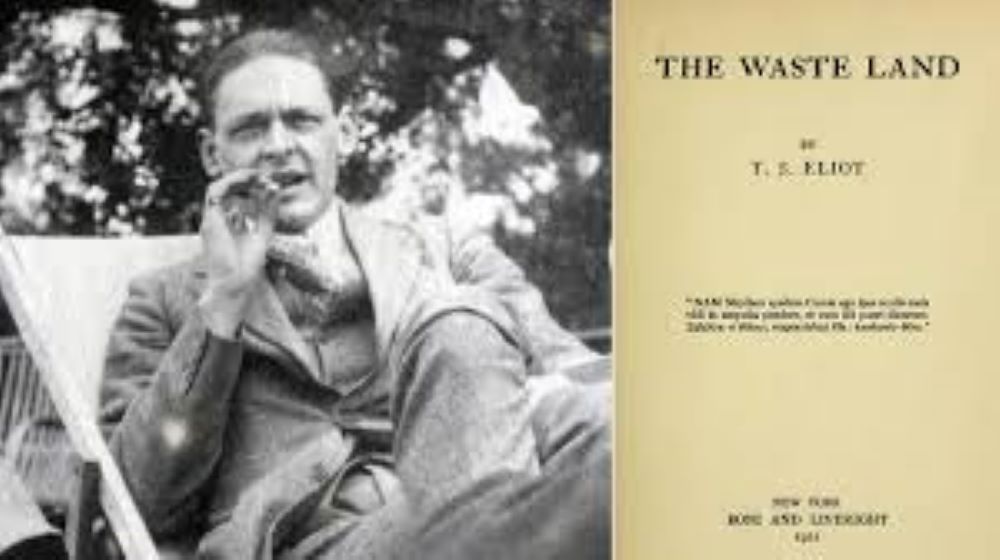
“The Waste Land” captures the aftermath and disillusionment resulting from the Bolshevik Revolution in Russia
SHOUKAT LOHAR
T.S. Eliot’s monumental poem, “The Waste Land,” stands as a landmark in modern English poetry. With its diverse cultural references, fragmented narrative, and dark imagery, it serves as a powerful critique of the maladies hidden within the modern world. Eliot’s work reflects the disillusionment and despair that followed the cataclysmic events of the early 20th century, including the Bolshevik Revolution, Darwinism, Marxism, and the devastating First World War. By abandoning the fairy tales of the Romantic age and delving into the wounds of modernity, “The Waste Land” emerges as a leading poem that exposes the complexities and challenges of the modern era.
The Rejection of Romanticism
The poets of modernity consciously moved away from the idealism and optimism of the Romantic age. They rejected the belief in the power of imagination and nature as a source of solace and inspiration. Instead, they sought to confront the harsh realities of the modern world. Eliot, along with other modern poets, understood that the fairy tales of the past no longer held relevance in a society marred by industrialization, urbanization, and social upheaval.
Sensitizing the Wounds of Revolution
“The Waste Land” captures the aftermath and disillusionment resulting from the Bolshevik Revolution in Russia. The poem reflects the crumbling of social structures and the loss of faith in revolutionary ideals. Eliot portrays a world where hope is shattered, and individuals are left emotionally and spiritually adrift. Through fragmented narratives and disjointed voices, he depicts the brokenness and confusion that emerge from societal upheaval.
 Critiquing Darwinism
Critiquing Darwinism
Darwinism and the theory of evolution had a profound impact on modern thought. It challenged traditional religious beliefs and raised questions about the purpose and meaning of human existence. “The Waste Land” reflects this crisis of faith and the resulting moral and existential confusion. Eliot’s poem implies that the progress of modernity has led to a loss of spiritual connection and a profound sense of emptiness.
Marxism and Social Critique
Eliot and other modern poets were deeply influenced by Marxist philosophy, which emphasized class struggle and the exploitation of the working class. “The Waste Land” exposes the stark inequalities and social divisions of the modern world, highlighting the alienation and despair experienced by individuals. Eliot’s poem suggests that modernity has failed to address the fundamental issues of social justice and equality, leading to a fragmented and desolate society.
Confronting the Catastrophes of the First World War
The devastation of the First World War profoundly impacted the collective consciousness of the modern era. “The Waste Land” captures the disillusionment and trauma of a generation that witnessed unprecedented destruction and loss. Eliot’s poem explores themes of fragmentation, despair, and the collapse of traditional values and institutions. It reveals the emptiness and despair that lingered in the aftermath of the war, questioning the very foundations of civilization.
Conclusion
“The Waste Land” stands as a leading poem that unmask the hidden maladies within modernity. T.S. Eliot and other modern poets abandoned the romanticized narratives of the past and confronted the harsh realities of the modern world. By sensitizing the wounds of the Bolshevik Revolution, Darwinism, Marxism, and the First World War, Eliot’s poem serves as a powerful critique of the modern era.
_________________
 Shoukat Lohar is Assistant professor in English at Mehran University of Engineering and Technology Jamshoro. He can be reached at Shoukat.ali@faculty.muet.edu.pk
Shoukat Lohar is Assistant professor in English at Mehran University of Engineering and Technology Jamshoro. He can be reached at Shoukat.ali@faculty.muet.edu.pk